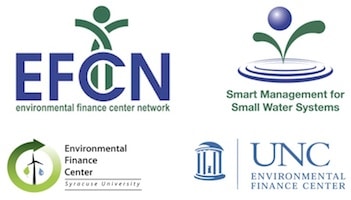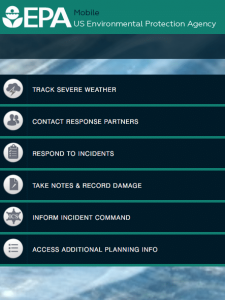 As part of the EPA Competitive Assistance Award process, AWWA and the Environmental Finance Center Network are partnering to offer the following no-cost web trainings designed specifically to meet the needs of small water systems. You do not need to be an AWWA member to participate – but advance registration for each event is required.
As part of the EPA Competitive Assistance Award process, AWWA and the Environmental Finance Center Network are partnering to offer the following no-cost web trainings designed specifically to meet the needs of small water systems. You do not need to be an AWWA member to participate – but advance registration for each event is required.
April 14, 2015 | 1:30–2:30PM (eastern)
Key Financial Indicators
Is your water system financially healthy? This webinar will discuss and examine the key financial indicators that allow small systems to make informed decisions in planning and investment. The webinar will include training on how to calculate and interpret your system’s operating ratio, debt service coverage ratio, current ratio, and days of cash on hand. The webinar will also discuss how funders use these numbers in deciding whether or not to loan your system money needed for capital improvements.
Attending this webinar will help you to:
- Better understand your system’s operating ratio, debt service, coverage ratio, current ratio, and days of cash on hand
- Understand your costs and revenues
- Move from “paycheck to paycheck” to longer term planning
Click here to register for this event.
—
April 16, 2015 | 1:00–2:00PM (eastern)
Asset Management IQ: How much do you know about AM tools and resources?
This interactive webinar will include an overview of Asset Management core principles and community/organization level of engagement with Asset Management. There are many tools and resources that communities can use as they move through the process of developing an Asset Management plan. This webinar will also provide an overview of available tools and resources.
Attending this webinar will help you to:
- Understand the concepts and practices of Asset Management
- Gauge system-wide level of understanding and engagement in Asset Management planning
- Understand how to conduct asset management using simple and complex tools
- Be presented with a breadth and depth of resources that support community asset management efforts
Click here to register for this event
—
Please direct any webinar-specific questions to Khris Dodson at kdodson@syracusecoe.org.
Please direct all other small system training questions to Kami Johle Butt at kbutt@awwa.org.
—
In-Person Workshops
These training partners are also offering several in-person training opportunities for small water systems:
- Oregon, Financial Management Workshop, April 8, 2015
- Louisiana, Asset Management and Water Loss Workshop, April 14, 2015
- Rhode Island, Management and Finance Tools and Techniques, April 14, 2015
- New Jersey, Small System Operator Training: Achieve and Maintain Compliance with SDWA, April 14 and April 21, 2015 (Two half day workshop)
Click 2015 Workshops for more information about these and other no-cost small system workshops sponsored by these training partners.



